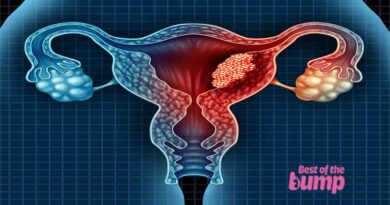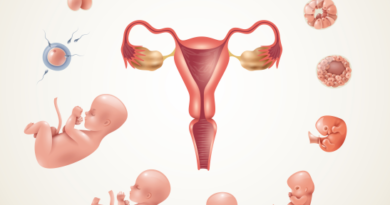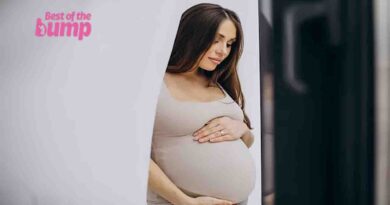Signs of Pregnancy
Signs of Pregnancy, pregnancy is an extraordinary journey that brings joy, anticipation, and changes in a woman’s body. Recognizing the signs of pregnancy is crucial for individuals who are trying to conceive or suspect they may be pregnant. While the most well-known sign is a missed period, there are several other physical, emotional, and behavioral indicators that may suggest pregnancy. In this article, we will explore the various signs of pregnancy and discuss their significance.
Changes in Menstrual Cycle
The menstrual cycle is often the first indicator of pregnancy. It is important to note that every woman’s cycle is unique, and not all menstrual changes necessarily point to pregnancy. However, the following changes may suggest the possibility of conception:
Missed Period
Signs of Pregnancy, a missed period occurs because the lining of the uterus does not shed as it normally would during menstruation. Instead, it remains in place to support the implanted fertilized egg. This is due to the increased levels of hormones, particularly progesterone, that are produced after conception. These hormones help maintain the uterine lining and prevent the shedding that typically occurs during a menstrual cycle.
It is crucial to understand that a missed period alone is not a definitive confirmation of pregnancy. To confirm pregnancy, it is advisable to take a home pregnancy test or consult with a healthcare professional. Home pregnancy tests detect the presence of human chorionic gonadotropin (hCG) hormone in the urine, which is produced by the placenta after implantation. These tests are generally reliable and can provide accurate results, especially when taken after a missed period.
If a woman has been actively trying to conceive and experiences a missed period along with other signs of pregnancy, such as breast tenderness, nausea, or fatigue, it increases the likelihood of pregnancy. However, it is essential to seek medical confirmation to ensure proper care and guidance throughout the pregnancy.
Light Spotting or Implantation Bleeding
Signs of Pregnancy, implantation bleeding typically occurs about ten to fourteen days after conception, around the time when a woman would expect her menstrual period. The bleeding is usually very light and lasts for a shorter duration than a regular period. It is often characterized by light pink or brownish spotting and may be accompanied by mild cramping or discomfort.
The reason behind implantation bleeding is the implantation process itself. After fertilization, the fertilized egg travels through the fallopian tube and eventually reaches the uterus. Once it reaches the uterus, it begins to burrow into the uterine lining to establish a connection and receive nourishment. This process can cause some small blood vessels in the lining to break, resulting in slight bleeding.
Physical Signs and Symptoms
Aside from changes in the menstrual cycle, pregnancy can bring about various physical changes in a woman’s body. These signs are the result of hormonal shifts and the body’s preparation for nurturing a developing fetus:
Breast Changes
Signs of Pregnancy, Breast changes are common during pregnancy and can serve as an early sign of pregnancy. Hormonal fluctuations cause the breasts to undergo various changes, including tenderness, swelling, increased sensitivity, and changes in size and shape. The increased blood flow to the breasts can also make them feel heavier or fuller. These changes occur as the body prepares for breastfeeding and nurturing the growing fetus. While breast changes alone are not definitive proof of pregnancy, they can be an important clue when accompanied by other signs and symptoms. Monitoring breast changes can provide valuable insights into the progression of pregnancy.
Nausea and Morning Sickness
Nausea, often referred to as morning sickness, is a well-known pregnancy symptom. It may occur at any time of the day and can be triggered by certain smells or foods. While not all pregnant women experience morning sickness, it is one of the classic signs of pregnancy.
Fatigue and Increased Sleepiness
Feeling unusually tired or fatigued is another early sign of pregnancy. The body undergoes significant hormonal and metabolic changes, which can result in increased sleepiness and a general feeling of exhaustion.
Frequent Urination
Signs of Pregnancy, frequent urination is a common symptom experienced by many pregnant women. During pregnancy, hormonal changes and increased blood flow to the pelvic region lead to increased urine production. Additionally, as the uterus expands and puts pressure on the bladder, it reduces its holding capacity, causing the need to urinate more frequently. Frequent urination is often more prominent during the first and third trimesters of pregnancy. While it can be inconvenient, it is a normal physiological response to pregnancy. However, if there is pain or discomfort during urination or other concerning symptoms, it is important to consult a healthcare professional.
Changes in Appetite and Food Cravings
Signs of Pregnancy, pregnancy commonly brings about changes in appetite and food cravings. Women may experience an increase or decrease in appetite, as well as specific cravings for certain foods. These changes are believed to be influenced by hormonal fluctuations and the body’s increased nutritional demands during pregnancy. Some women may develop a preference for particular tastes or textures, while others may experience aversions to certain foods. It is important for expectant mothers to maintain a balanced and nutritious diet to support the health and development of both the mother and the baby. Consulting a healthcare professional or a nutritionist can provide guidance on healthy eating during pregnancy.
Emotional and Behavioral Changes
Pregnancy affects not only the body but also a woman’s emotions and behaviors. While these signs are more subjective and can vary from person to person, they are important to consider:
Mood Swings
Signs of Pregnancy, mood swings are a common occurrence during pregnancy due to the hormonal changes taking place in a woman’s body. Fluctuations in estrogen and progesterone levels can affect neurotransmitters in the brain, leading to emotional instability and mood swings. Pregnant women may experience heightened emotions, increased irritability, sudden changes in mood, or feelings of sadness or anxiety. These mood swings can be challenging to manage, but understanding their underlying cause and seeking emotional support from loved ones or healthcare professionals can help pregnant women navigate this emotional rollercoaster with greater ease. Engaging in relaxation techniques and self-care activities may also provide relief.
Increased Sensitivity to Smells
Signs of Pregnancy, many women experience an increased sensitivity to smells, known as heightened olfactory sensitivity. This heightened sense of smell is thought to be influenced by hormonal changes and can lead to a stronger reaction to certain odors. Pregnant women may find that previously unnoticed scents become more intense or that certain smells become overpowering and even trigger feelings of nausea or aversions. It is important to be aware of these sensitivities and make necessary adjustments, such as avoiding strong odors or keeping a well-ventilated environment. Understanding and accommodating these changes can help pregnant women navigate their daily routines more comfortably.
Frequent Urge for Emotional Connection
Signs of Pregnancy, some women may experience a frequent urge for emotional connection and support. This can manifest as a strong desire to spend time with loved ones, seek out social interactions, or engage in activities that foster emotional connection. Pregnancy is a time of significant physical and emotional changes, and the need for emotional support and understanding is heightened. Sharing thoughts, concerns, and experiences with trusted individuals or joining pregnancy support groups can provide a sense of belonging and validation. Connecting with others who are going through similar experiences can offer comfort and reassurance throughout the pregnancy journey.
Other Possible Signs
In addition to the aforementioned signs, there are other indications that may suggest pregnancy. These signs may vary from woman to woman and may not always be reliable indicators on their own
Dizziness or Fainting Spells
Dizziness or fainting spells can occur during pregnancy due to several factors. Hormonal changes, particularly a drop in blood pressure, can contribute to feelings of lightheadedness or dizziness. Additionally, the increased blood volume and expanded blood vessels can sometimes lead to inadequate blood flow to the brain, resulting in fainting episodes. Pregnant women are also prone to experiencing low blood sugar levels, which can exacerbate dizziness. To manage these symptoms, it is essential for pregnant women to stay hydrated, eat regular, balanced meals, and avoid standing up quickly. If dizziness or fainting spells persist or worsen, it is important to seek medical attention for proper evaluation and guidance.
Changes in Skin and Hair
Signs of Pregnancy, Pregnancy can bring about changes in the skin and hair due to hormonal fluctuations. Some women may experience an improvement in their skin, with a radiant and glowing complexion, while others may notice acne breakouts or changes in skin pigmentation, such as melasma. Hair may become thicker, shinier, and more voluminous due to increased estrogen levels. Conversely, some women may experience hair loss or changes in hair texture. It’s important to maintain a gentle skincare routine, protect the skin from sun exposure, and consult with a healthcare professional or dermatologist for any concerns about skin or hair changes during pregnancy.
Changes in Libido
Signs of Pregnancy, changes in libido, or sexual desire, are common during pregnancy and can vary from woman to woman. Hormonal fluctuations, physical discomfort, and emotional changes can all impact a woman’s sexual desire during this time. Some women may experience an increase in libido, often in the second trimester when nausea and fatigue tend to subside. On the other hand, some women may experience a decrease in libido due to hormonal shifts, physical discomfort, or concerns about the safety of sexual activity during pregnancy. Open communication with a partner and discussing any concerns or discomfort with a healthcare professional can help navigate changes in libido during pregnancy.
Signs of Pregnancy, recognizing the signs of pregnancy is essential for individuals who suspect they may be expecting or are actively trying to conceive. While a missed period is often the first clue, it is crucial to consider other physical, emotional, and behavioral changes as well. However, it is important to remember that these signs are not definitive proof of pregnancy, and consulting with a healthcare professional and taking a pregnancy test is the most reliable way to confirm pregnancy.
Early Signs of Pregnancy: Recognizing the Clues
Signs of Pregnancy, discovering the early signs of pregnancy is an exciting and crucial step for individuals who are trying to conceive or suspect they may be pregnant. While a missed period is often the most well-known sign, there are various other early indicators that can provide valuable insight into a possible pregnancy. By recognizing and understanding these early signs, individuals can take appropriate steps towards confirming their pregnancy and seeking appropriate prenatal care. In this comprehensive guide, we will explore in-depth the different early signs of pregnancy and their significance.
Missed Period
The Classic Sign
Signs of Pregnancy, one of the most recognized and common early signs of pregnancy is a missed period. For women with regular menstrual cycles, a missed period can serve as an initial clue that conception may have occurred. However, it is important to consider other factors that could cause a missed period, such as stress, hormonal imbalances, or certain medical conditions. While a missed period is a significant indicator, it is not definitive proof of pregnancy on its own. Therefore, it is essential to consider other early signs to confirm pregnancy.
Changes in Breast Sensation and Appearance
Changes in the breasts can occur as early as one to two weeks after conception. These changes are a result of hormonal fluctuations and the body’s preparation for breastfeeding. Some of the common breast-related early signs of pregnancy include.
Breast Tenderness
The breasts may become tender, sore, or sensitive to touch. They might feel fuller or heavier due to increased blood flow and hormonal changes.
Darkening of the Areolas
The area around the nipples, known as the areolas, may darken in color. This is caused by hormonal changes and increased pigmentation.
Enlargement
The breasts may undergo slight enlargement or swelling due to increased blood flow and the growth of milk ducts in preparation for breastfeeding.
Recognizing these breast changes, along with other early signs, can provide further indications of pregnancy.
Fatigue and Increased Sleepiness
Signs of Pregnancy, feeling unusually tired or fatigued is a common early sign of pregnancy. Hormonal changes and increased metabolic demands on the body can lead to a sense of exhaustion and the need for more rest. Pregnant individuals may find themselves needing to take naps during the day or feeling overall lethargic. It is important to listen to the body’s signals and prioritize adequate rest during this time.
Nausea and Morning Sickness

Nausea, often accompanied by vomiting, is a well-known early sign of pregnancy. Although it is commonly referred to as morning sickness, it can occur at any time of the day or night. The exact cause of morning sickness is still not fully understood, but hormonal changes, particularly elevated levels of human chorionic gonadotropin (hCG), play a significant role. Morning sickness usually starts around the sixth week of pregnancy and may last until the end of the first trimester. While not all pregnant women experience morning sickness, it is considered a positive sign of a progressing pregnancy.
Increased Urination Frequency
Increased urination frequency is a common early sign of pregnancy. As pregnancy progresses, the growing uterus puts pressure on the bladder, leading to a more frequent need to urinate. Additionally, hormonal changes increase blood flow to the kidneys, resulting in increased urine production. This symptom is more pronounced during the early stages of pregnancy and tends to improve in the second trimester. While frequent urination can be inconvenient, it is a normal physiological response to pregnancy.
Changes in Appetite and Food Cravings

Changes in appetite and food cravings are often reported by pregnant individuals. These changes can vary from person to person and can occur due to hormonal fluctuations and the body’s increased nutritional requirements. Early signs related to appetite and food cravings include.
Increased Appetite
Some pregnant individuals may experience an increase in appetite, feeling hungrier than usual. This is the body’s way of meeting the increased energy needs during pregnancy.
Food Cravings
Pregnant individuals may develop intense cravings for specific foods or unusual combinations. These cravings can range from a desire for salty or sweet foods to a preference for certain fruits, vegetables, or even non-food items.
Aversions to Certain Foods
Conversely, pregnant individuals may also develop aversions or strong dislikes for foods they previously enjoyed. The smell, taste, or even the thought of certain foods may trigger nausea or discomfort.
Mood Swings and Emotional Changes

Hormonal changes during early pregnancy can influence emotions and mood. Pregnant individuals may experience mood swings, feeling elated one moment and tearful or irritable the next. Emotional changes during early pregnancy can be attributed to fluctuations in estrogen and progesterone levels. It is important to provide support and understanding to pregnant individuals during this time as they navigate these emotional changes.
Heightened Sense of Smell
A heightened sense of smell is a common early sign of pregnancy. Pregnant individuals may become more sensitive to certain odors and find previously unnoticed smells to be overwhelming or even repulsive. This heightened olfactory sensitivity is believed to be linked to hormonal changes and can contribute to nausea or aversions to certain scents. It is important to be aware of these sensitivities and make necessary adjustments to the environment to ensure comfort and well-being.
Other Potential Early Signs of Pregnancy
Apart from the prominent signs discussed above, there are several other potential early signs of pregnancy. These signs can vary from person to person and may include:
Headaches
Some pregnant individuals experience mild to moderate headaches due to hormonal changes and increased blood volume.
Constipation
Hormonal changes can slow down the digestive system, leading to constipation or difficulty passing stools.
Dizziness or Fainting
Pregnancy hormones can cause blood vessels to dilate, leading to a drop in blood pressure and occasional dizziness or fainting spells.
Heightened Basal Body Temperature (BBT)
Tracking changes in basal body temperature can be an early indication of pregnancy. A sustained rise in BBT after ovulation may suggest pregnancy.
Signs of Pregnancy, recognizing the early signs of pregnancy is crucial for individuals who suspect they may be pregnant or are actively trying to conceive. While a missed period is often the first indicator, paying attention to other signs, such as breast changes, fatigue, nausea, increased urination, appetite changes, mood swings, heightened sense of smell, and other potential symptoms, can provide further insight. However, it is important to remember that these signs are not definitive proof of pregnancy, and consulting with a healthcare professional and taking a pregnancy test is the most reliable way to confirm pregnancy. Early detection and appropriate prenatal care are essential for a healthy and successful pregnancy journey.
early pregnancy symptoms
Signs of Pregnancy, early pregnancy symptoms can vary from woman to woman, and some individuals may experience only a few or even none at all. It’s important to note that these symptoms can also be caused by factors other than pregnancy. However, here are some common early pregnancy symptoms that women may experience:
Missed Period
A missed period is often the first sign that prompts women to suspect pregnancy. However, it’s important to consider other factors such as stress or hormonal imbalances that could also cause a missed period.
Breast Changes
Many women experience changes in their breasts early in pregnancy. They may become tender, swollen, or sensitive. The areolas may darken, and veins may become more visible.
Fatigue
Feeling unusually tired or exhausted is a common early pregnancy symptom. Hormonal changes increased metabolic demands, and emotional adjustments can contribute to feelings of fatigue.
Nausea and Morning Sickness
Nausea, often referred to as morning sickness, is a classic early pregnancy symptom. It can occur at any time of the day and is often accompanied by vomiting. Despite the name, morning sickness can last all day.
Frequent Urination
Increased urination frequency can be a result of hormonal changes and the growing uterus putting pressure on the bladder. This symptom is more prominent in the early stages of pregnancy.
Changes in Appetite and Food Cravings
Some pregnant women experience changes in their appetite, with cravings for specific foods or aversions to certain smells or tastes. These changes are thought to be influenced by hormonal fluctuations.
Mood Swings
Hormonal changes can impact mood and emotions, leading to mood swings, irritability, or heightened emotional sensitivity.
Heightened Sense of Smell
Pregnant women may become more sensitive to certain smells and find previously unnoticed odors to be overwhelming or even unpleasant.
Light Spotting or Implantation Bleeding
Some women may experience light spotting or implantation bleeding about 10 to 14 days after conception. It is typically lighter and shorter than a regular menstrual period.
very early signs of pregnancy 1 week
Signs of Pregnancy, during the first week of pregnancy, it is unlikely for most women to experience noticeable symptoms as it is very early in the process. However, some women may observe very subtle changes that could potentially be early signs of pregnancy. It’s important to note that these signs are not definitive proof of pregnancy and can also be attributed to other factors. Here are a few possible early signs that some women may observe at one week.
Implantation Bleeding
Signs of Pregnancy, some women may experience light spotting or implantation bleeding around one week after conception. This is caused by the fertilized egg attaching itself to the uterine lining. However, not all women experience this, and it can be easily mistaken for a light period or other spotting.
Fatigue
Feeling more tired or experiencing a general sense of fatigue can occur as early as one week after conception. Hormonal changes in the body during early pregnancy can contribute to feelings of exhaustion.
Breast Sensitivity
Signs of Pregnancy, some women may notice slight breast tenderness or sensitivity within the first week of pregnancy. This can be attributed to hormonal changes and increased blood flow to the breasts.
Increased Basal Body Temperature
Tracking basal body temperature (BBT) can help detect subtle changes in temperature that may indicate ovulation and potential pregnancy. A sustained rise in BBT beyond the expected ovulation window may suggest pregnancy.
Heightened Sense of Smell
While it is rare, some women may experience a slight increase in sensitivity to smells early on in pregnancy. This can lead to a heightened awareness of certain odors.
Bloating or Mild Cramping
Some women may experience mild bloating or cramping in the early stages of pregnancy. These symptoms can resemble premenstrual discomfort but are milder in intensity.
Signs of Pregnancy, it is essential to remember that these early signs are not definitive indicators of pregnancy, and their presence can vary greatly from woman to woman. Additionally, it is advisable to wait until a missed period and take a home pregnancy test or consult with a healthcare professional for confirmation if pregnancy is suspected.




